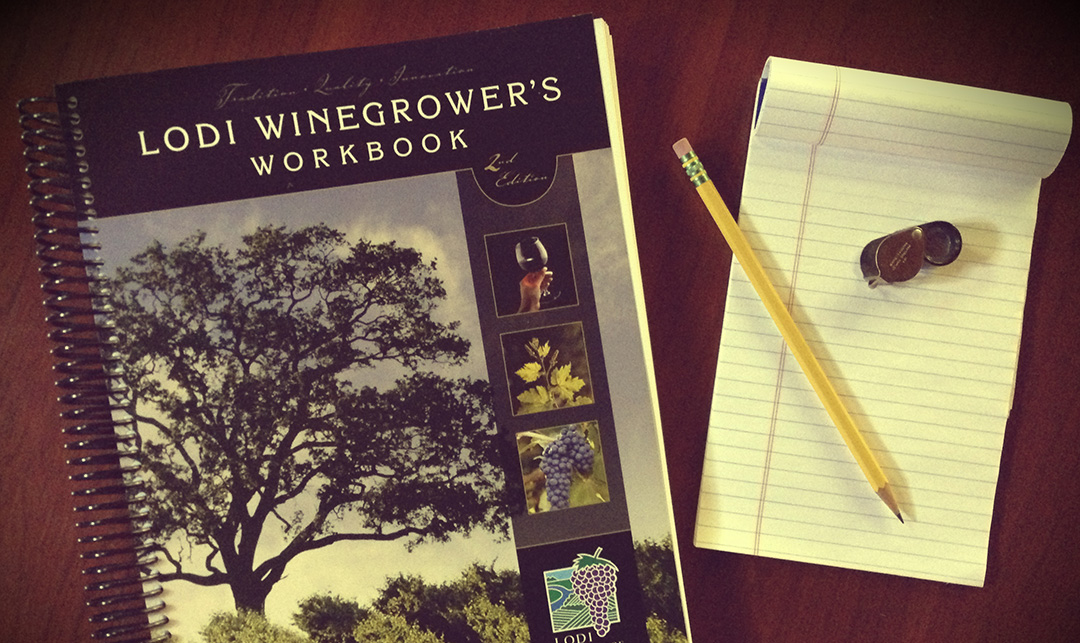
Lodi Winegrower’s Workbook
The Lodi Winegrower’s Workbook was among the first books of its kind in the winegrowing industry, and was designed as a tool to help Lodi winegrowers manage their vineyard operation in a way that balances economic, environmental, and social goals of sustainable agriculture.
The workbook is not only a comprehensive reference book for winegrowing, but it can be used used to assess the sustainability of one’s farming business.
The workbook guides growers through the following stages:
- Identification of farming practices which can improve winegrape quality, environmental quality, and those that benefit their family, employees, and community.
- Identification of concern areas related to winegrape quality, environmental quality, and the well-being of their family, employees, and community.
- Determination of concern areas to be targeted for improvement.
- Development of action plans to address targeted areas of concerns.
The workbook was drafted by Lodi Winegrape Commission staff, with the help and guidance of a 17-member committee of Lodi winegrape growers, viticulture and pest management consultants, University of California Cooperative Extension scientists and farm advisers, and a wildlife biologist. The workbook takes a systems approach to winegrape growing, meaning that it considers biophysical, human, built, and economic aspects of the farming system.
The workbook addresses 160 issues which are grouped into the following chapters:
- Ecosystem Management
- Vineyard Establishment and Replanting
- Viticulture
- Soil Management
- Water Management
- Pest Management
- Human Resources Management
- Shop and Yard Management
- Wine Quality and Customer Satisfaction
